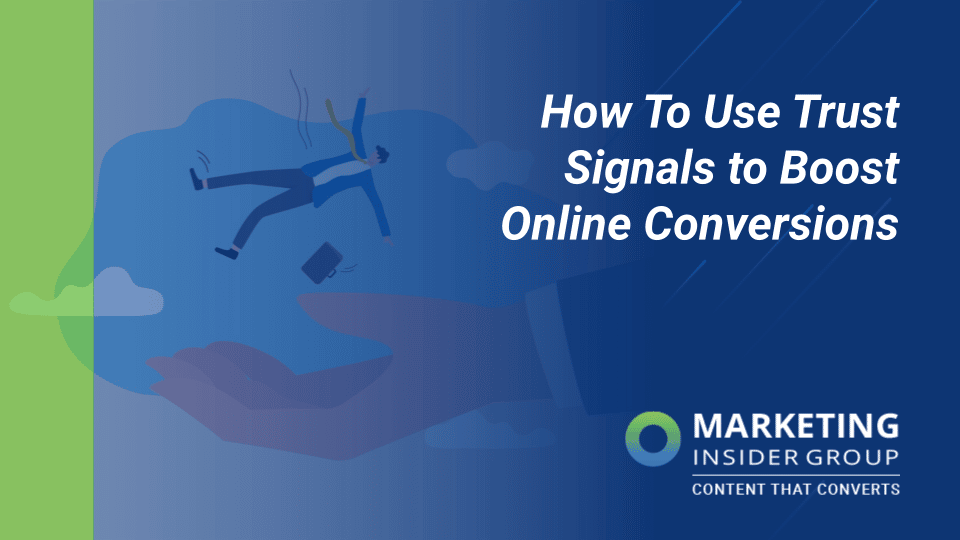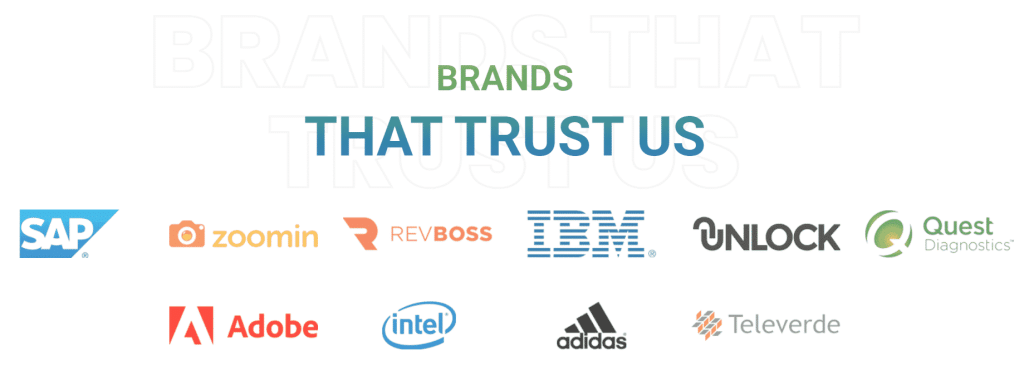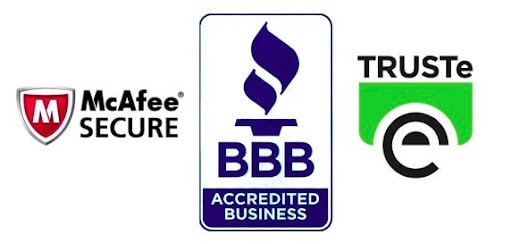
How to Use Trust Signals to Boost Online Conversions
There is no building meaningful customer relationships without trust.
You want people to regard your brand with confidence. This can be achieved through the way you operate your business, interact with clients, protect their data, and promote your products and services. Ultimately, this trust will help boost online conversions.
Trust signals serve as validations from customers and online communities regarding the credibility and legitimacy of your business. This can come in many forms; badges, certificates, content, or symbols that online users consciously or unconsciously look for to help them gauge the authenticity of your website. Trust signals have also become increasingly more important in Google’s eyes when determining how SEO-friendly your page is.
Let’s look at some common trust signals you can use on your website that will help in building a community for your brand and increasing online conversions for your business.
Quick Takeaways:
- Never miss an opportunity to get your happy customers to review your product.
- Showcase client testimonials prominently and include logos of well-known client brands.
- Tell your customer about yourself, include an about page and make your social profiles visible while encouraging customers to visit them.
- Create a content strategy that projects you as a thought leader in the industry.
1. Include Relevant Information About Your Product and Services
B2B buyers base their purchasing decision not just according to how much product info you provide to them, but also how useful the info is.
You might think you’re doing a great service to your audience by writing lengthy product descriptions on your site, but you should try different methods of educating potential buyers about your product.
This is especially true if you’re selling something that’s either technical or customizable, such as software, in which case, you can come up with product training videos to show how your product works or to explain how you can tailor the program to fit specific business models or needs.
This is also a good opportunity to exemplify some thought leadership in your space. Why is your product or service relevant now? How can you help a potential customer more than your competitors? Consumers seek out content that applies to them and their pain points.
2. Showcase Customer Testimonials and Reviews
Once people have bought or used your product, encourage them to submit product reviews. Allowing them to talk about their experience with your product is a sign that you value their opinion, not to mention that their feedback can act as a valuable customer testimonial.
Just like product reviews, you can use customer testimonials as trust signals to show that people are satisfied with your offering. Note that testimonials work better if your company primarily provides a service and does not have e-commerce capabilities.
A testimonial gives your company and brand a human touch that can go a long way in building credibility.

You can highlight testimonials anywhere on your website – from your homepage to landing pages that focus on a particular solution. Make sure the testimonials you highlight contain a detailed account of how customers benefited from using your service, not just generic comments that might fail to impress future buyers.
Don’t forget to include your customers’ name, company name, job title, and actual photos, so website visitors can see for themselves that these customers are in fact legitimate people who use your services.
Through testimonials, people who used to be unfamiliar with your business may become more interested or even move further into the next stages of the marketing funnel. Combining user-generated content with personalized lead nurturing, you can engage your prospects and eventually encourage them to convert.
3. Share Your Blog Posts
Content marketing itself can be a form of trust signal, too. This goes back to our earlier point about thought leadership. Your blog and other content you put out represents your industry knowledge.
When you share useful content through blog posts, you’re making use of an opportunity to help customers with their needs or problems through the information you provide. Your content will also show that you’re an industry expert who can provide valuable insights and instructions.
As long as you follow this path in content marketing, you’re increasing the trust signals for your business. The complete opposite happens when you serve content that’s overly sales-y, as customers are more likely to tag your business as self-serving and untrustworthy.
4. Promote Your Social Media
Because social media is mainly about communicating information and sharing it with others, it can be a great venue to get people to engage in trust marketing or word-of-mouth marketing.
An active, engaging social media profile can help you connect with users as you share content, initiate interactions, and build relationships with your followers. Some of the top marketing influencers have made a name for themselves through their social media interactions.
This makes it imperative for you to display your company’s social profiles throughout your website, where people can find out more about your brand’s personality. Once in a while, you can post photos of your company events or news about your brand’s milestones in the industry to help you become more relatable as a social community.
You can even display your personal Twitter or LinkedIn account along with your picture so that you can have a more personal connection with sales prospects. Business-wise, connecting with your social media followers can help you meet like-minded individuals who can be instrumental in further expanding your professional network.
5. Provide Contact Information
B2B customers might prefer to speak to a representative about your business via phone first, while others might want to receive preliminary information through email, so make sure to include your phone number and email address prominently on your website.
Aside from these, you may also indicate which people they should contact in a particular department, so your website visitors will have a name to work with.
This can present itself in the form of an ‘about us‘ page. Not only does this provide a potential customer with access to your employee’s information but is a chance to describe your business in further detail than the product or service you provide.
Providing information about your business address can also add to your trustworthiness, for the simple reason that it makes customers aware as to where to physically find your company. Also, from an SEO perspective, you can be found more easily on local searches.
6. Feature Well-known Customer’s Brand Logos
The precept behind showing the logos of popular brands or companies in your list of customers is that if someone of that stature trusts you with their business, then others should probably entrust their business to you as well. Lately, it’s also common practice to mention media outfits that have featured a startup retailer or an upcoming tech company as a way to influence public perception.

7. Display Security Badges and Other Seals of Approval
Security badges are also essential in ensuring visitors about the integrity of your site and that there’s no way for them to fall victim to scammers or spammers who might use their personal or financial information illegally. 68% of business leaders believe their cybersecurity risks are increasing in the new year.
As a B2B vendor, you must assure your customers that your site or business has been verified for technical security and legitimacy of business.
Examples of common security seals include verified/accredited business badges and anti-virus secure badges. These can give your visitors peace of mind while searching your website and when considering your brand’s offering.

Trust Signals in a Nutshell
Trust signals play a big role in driving more conversions on your website because they see it as a safe and secure place where they can engage with you or buy from you.
Don’t give your prospects any opportunities to doubt your brand’s credibility. From your contact information to your thought leadership blog, make sure your website visitors know from the get-go that your brand can be trusted.
Do you need help creating credible content for your business? Check out our weekly content marketing service or schedule a free consultation today.







Trust is everything in any relationship. And business is a relationship. The higher the value of the product, the more important trust is. I won’t worry about whom I buy a set of pencils from. But a computer or a mattress or a bicycle is another matter.
Good point David!